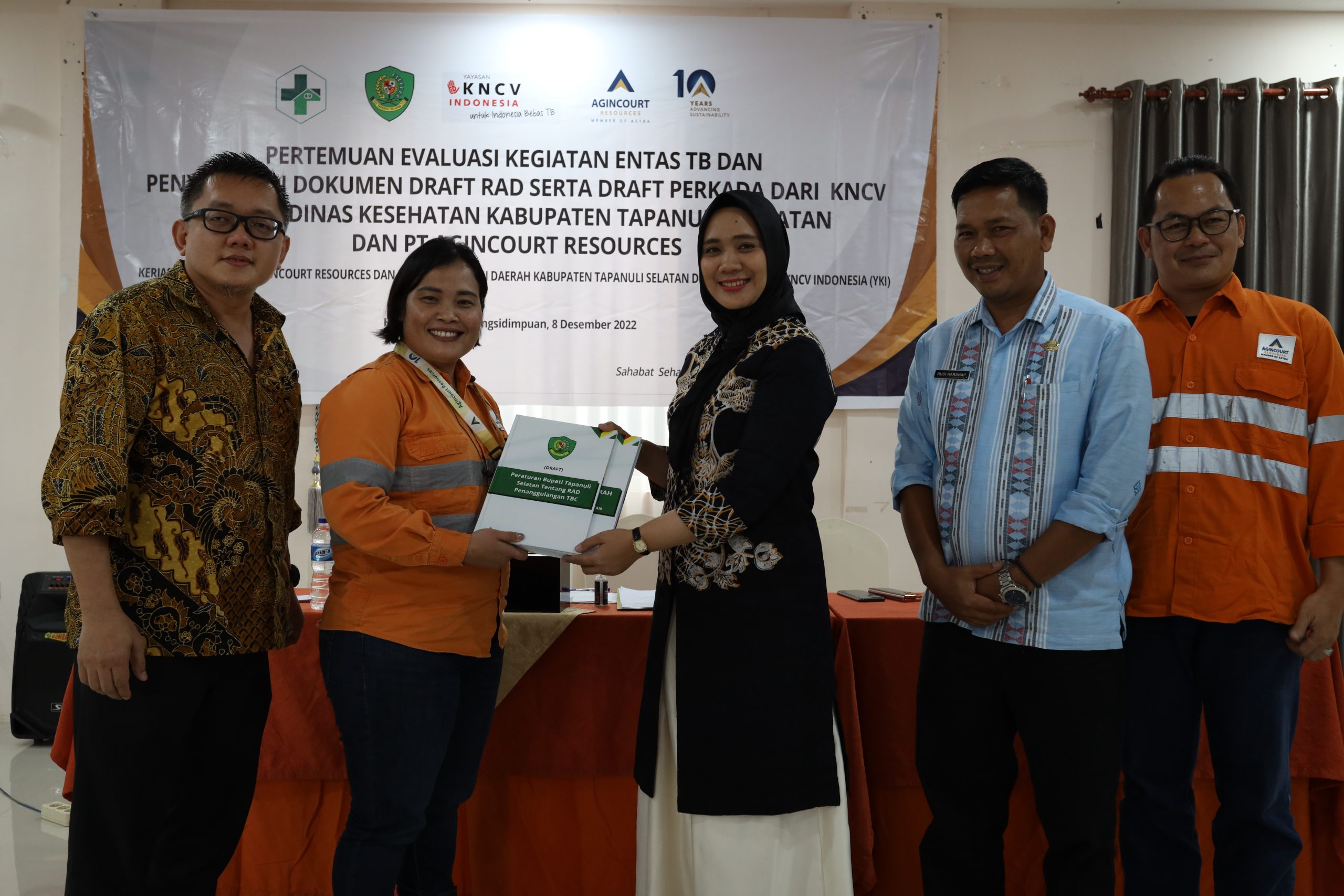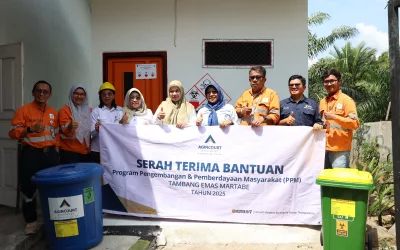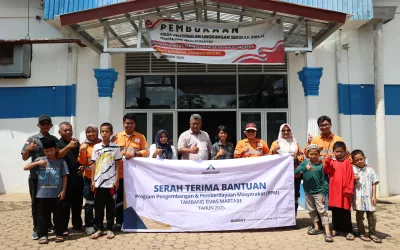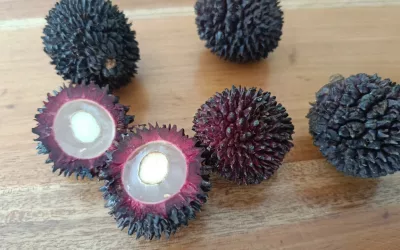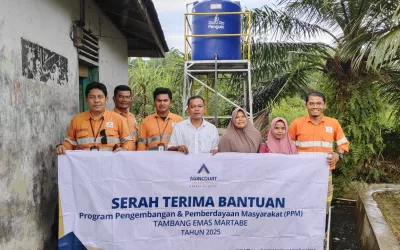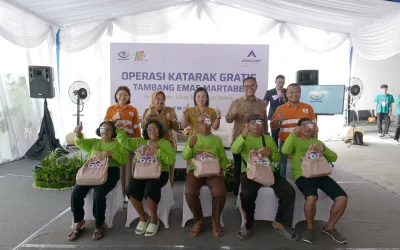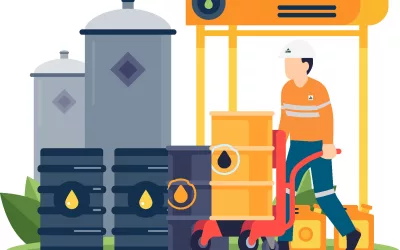PT Agincourt Resources (PTAR) succeeded in facilitating South Tapanuli to immediately have a Regional Action Plan (RAD) and Regional Head Regulation (Perkada) for Entas Tuberculosis (TB). The draft of RAD and Perkada documents were submitted by the KNCV Foundation (Koninklijke Nederlandse Centrale Vereniging tot bestrijding der Tuberculose) Indonesia (an international non-profit organization that specifically focuses on TB alleviation) to the South Tapanuli Health Service, on Thursday, 8 December 2022 at the Mutiara Hotel, Padangsidimpuan.
This activity was also attended by various elements of the Regional Apparatus Organization (OPD), Batangtoru and Muara Batangtoru Sub-District Heads, Aufa Royhan University, the media, Batangtoru and Hutaraja Health Centers, as well as sub-district and village PKK Mobilization Teams, and other community institutions concerned with TB in South Tapanuli.
Head of the South Tapanuli PKK Mobilization Team and Chair of the Multi-Sector Forum (FMS) Rosalina Dolly Pasaribu said that comprehensive, integrated and sustainable efforts are the keywords for dealing with TB cases. Therefore, it is hoped that all stakeholders in South Tapanuli can use the RAD document as a reference in planning and budgeting, especially in the framework of realizing a healthy, intelligent and prosperous South Tapanuli community. “I really appreciate the amazing support from PTAR.”
PTAR Community Development Manager Rohani Simbolon said the RAD and Perkada documents were still in the form of drafts, so fast action was needed from the South Tapanuli Health Office to sign and finalize them. “To see whether this partnership is successful, concrete actions are needed in each work area.”
One step ahead, this year PTAR has taken concrete action through case finding and TB screening conducted in seven target villages/kelurahans in Batangtoru and Muara Batangtoru Sub-Districts, by empowering Posyandu cadres and holders of the Puskesmas and PKK programs supported by the village government. Of the 7 villages/kelurahan, 42 cases were found. Not only that, 1,747 contact investigations or screening were also carried out. “This shows the results of real actions that can be emulated by other districts and other OPDs in their respective regions,” concluded Rohani.

